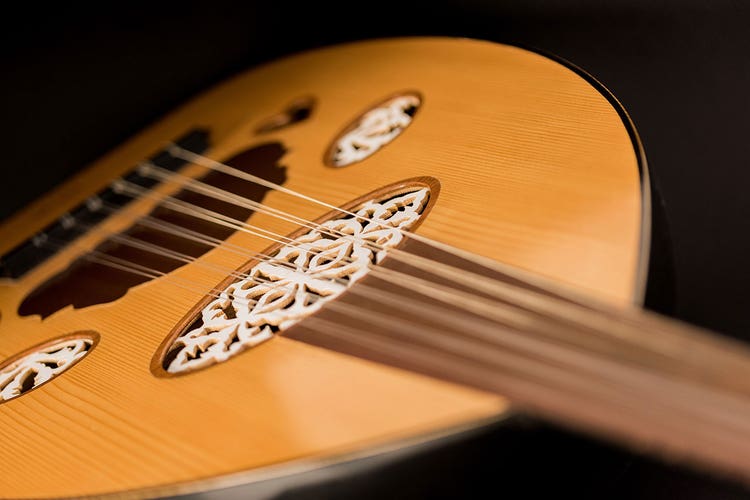Flip, Redefine and Pay Tribute to Move Forward

Take a lesson from musical artists on innovation.
Innovation is the key to sustainability, as well as living a productive and creative life. Not being able to innovate leaves you stuck in the past, a fate many businesses suffer when deciding to hold on to previous models of success not reflective of the times.
One good example is Kodak, which in 1976 was responsible for 90 percent of all film sales and 85 percent of cameras sold in the United States. More recently, it barely escaped the ravages of a 2012 bankruptcy to emerge as an imaging company on an entirely different, and updated, platform.
Innovation does not occur in a vacuum. It requires an understanding of what came before while also integrating varied elements to create a new paradigm. Technology companies rely on this constant innovation, which has its organizational roots in 19th century free-market capitalism. Businesses had to constantly adapt to (and create) consumer demand or risk perishing. This trend has only accelerated in the digital age.
The same holds true in the arts. Since the focus of this column is music, this month we’re exploring artists who innovate old styles to create brand-new sounds. Whether a cover, remix or original take made up of prior material, all musicians in this diverse playlist reach for something new.
Culture flipping

The gonjey fiddle is a staple of West African music, though in the hands of Ohio-bred violinist and vocalist Sudan Archives, this unique single-stringed instrument takes on new meaning. This fiddle is responsible for the high-pitched melody you’ll hear in “Come Meh Way” from her incredible debut EP.
German reggae singer Sara Lugo invited Jamaica’s Proteje to sing along on her hit “Really Like You,” a credible pop tune. But in the hands of German producer Dunkelbunt, who specializes in Balkan music, the song takes on an entirely new dimension. Dance hall meets dance house.
Marlena Shaw’s 1969 soulful smash “Woman of the Ghetto” put her on the map. But in 2010, Wu-Tang’s Ghostface Killah lifted the hook, added a stronger beat and invited his Wu-Tang fam to rap overtop—a magnificent updating on soul culture four decades later.
Brooklyn-based ensemble Antibalas is a big reason Afrobeat surged (and continues to surge) on American dance floors in the early aughts. While they’re mostly true to Fela Kuti’s style, this cover of Hector Lavoe and Willie Colon’s “Che Che Cole” takes salsa to another plane of sonic bliss.
Novalima is a Peruvian dance band with serious chops. When I was asked to remix them alongside my EarthRise SoundSystem partner Duke Mushroom, we wanted to do a complete culture flip. So we injected a bit of Morocco into the Peruvian groove, with oud, krakebs and dumbek. Gnawa ceremonies are meant for trance, and this is the vibe we aimed for in this driving remake of an already great song.
Redefining tradition

For the next two tracks, I chose house versions of gospel, which is in many ways where house music began. Karizma’s “Work It Out” is a hand-clapping, foot-stomping feel-good classic, while the Claptone remix of gospel-soul singer Gregory Porter’s “Liquid Spirit” is impossible to sit still to.
If any foreign music has seeped into American mainstream, it is Cuban music, thanks to the Buena Vista Social Club. A few years ago, those same musicians joined forces with a handful of top Malian musicians to rethink their catalog. While I love the entire AfroCubism album, “Al Vaiven de Mi Carreta” forever has my heart.
Speaking of heart, Brazil’s Seu Jorge once made an entire album of David Bowie songs. Here, he covers Roy Ayers’ classic “Everybody Loves the Sunshine.” The psychedelic effects provided by backing band Almaz make this a truly unique take.
Warsaw Village Band formed nearly 20 years ago to update Polish village music. I met the band 15 years ago in New York City; it was a trip watching the 20-somethings wearing Chuck Taylor’s and Indian kortas, rocking dreadlocks and Adidas warm-up pants while playing ancient Eastern European folk music filled with dubby bass lines. “Grey Horse” is more subdued than most of their catalog, but absolutely beautiful.
Paying tribute

For the final part of this month’s innovative set, a snippet of Isaac Hayes’ 1971 track “Ike’s Rap II” became the basis of Portishead’s 1994 hit “Glory Box,” which the young singer Alessia Cara turned into her 2015 megahit “Here.” I love the multi-generational nature of sampling. I included all three tracks so you can trace the evolution.
I had finished the playlist when I recalled my favorite singer Jeff Buckley’s cover of Pakistani qawwali singer Nusrat Fateh Ali Khan, who is my second favorite singer. (Was, I suppose, because both men died way too young.) You can hear the crowd laughing at the beginning of this live performance because, for a moment, they thought he was kidding. How was this white boy from California going to pull off 700 years of Muslim tradition? Yet he does, incredibly and gorgeously.
Qawwali is one of my favorite musical genres on the planet. I highly suggest seeking out the original because it’s nothing like Buckley’s version. Then again, there was nothing like Buckley, and that’s the point: Finding your voice is the first step in innovating a new reality. From there, forge ahead.
Photo credit: Roman Rvachov, ismel leal, rgbspace, DWP, Adobe Stock